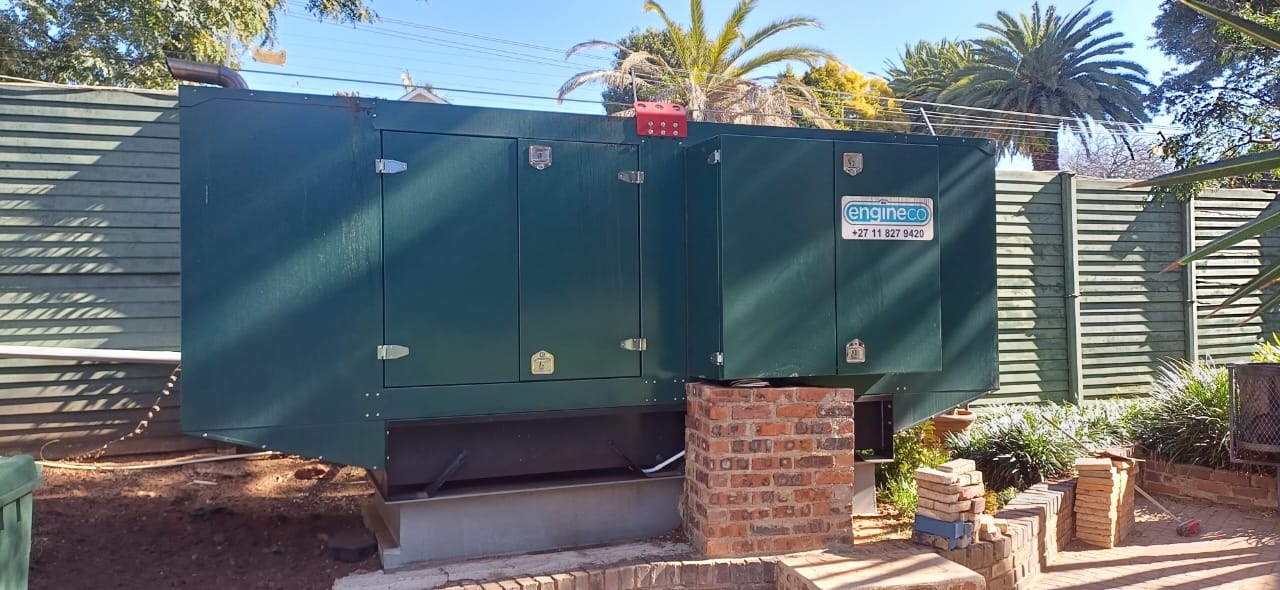
Banner

King David fuel levy causes rumble
When King David Schools’ parents received a letter from the South African Board of Jewish Education (SABJE) recently telling them that they needed to pay a levy towards the schools’ energy costs, many were shocked.
Some were upset they had not been consulted about the levy, to be billed from 1 August, saying that they were already stretched to their limit in terms of school fees and the cost of living. Some pointed out that government schools and other private schools hadn’t imposed such a levy.
Others said the school was doing its best, and wouldn’t have come to parents unless it had no other choice. Many commended the school for going above and beyond the call of duty, saying that it was the reality of living in South Africa. The levy is R175 for one child per month or R350 per family with two or more children at SABJE schools.
SABJE General Director Rabbi Ricky Seeff said, “In 2021, thanks to generous donor funding, King David was able to install generators on our campuses. This was an amazing advantage for our schools.
“As loadshedding increased in 2022, we realised that the generators were becoming increasingly costly. We budgeted accordingly for 2023 by adding an inflationary increase onto our 2022 costs, intending to cover the running costs in our operating budget. Unfortunately, the costs associated with loadshedding in 2023 have far exceeded our anticipated budget, and have left us facing a shortfall in excess of R2.5 million. The costs aren’t limited to diesel consumption. Network-switch failures, security infrastructure, and generator servicing and maintenance have all added to these costs.”
Seeff responded to questions about consultation, saying, “As an executive and board, we actively seek out feedback and input from the parent body, formally and informally, through the various structures across the schools. For obvious reasons, broad consultation would be counter-productive in many operational situations.
“However, the SABJE is well run in every respect, and internally we have layers of governance structures that all financial decisions pass through before being implemented. We were aware that this levy would present some families with a challenge, and we also believed that many would understand it, given the effect of loadshedding. Both perspectives are reflected in the feedback that we’ve received.
“King David supports hundreds of children annually who receive an excellent education. Our community lies at the heart of everything we do, and the SABJE subsidy programme is unique globally in terms of its coverage and the role it plays. If there are any genuine financial constraints preventing payment of the levy, we will endeavour to help however possible. This doesn’t extend to people who are simply ideologically against a levy for unforeseen expenditure of this nature.”
The SABJE’s average monthly cost of diesel is R243 000, with some months reaching as high as R320 000. “As mentioned, this doesn’t take into account any other associated loadshedding costs and failures,” he said.
“We made the decision to keep the levy as low as possible, knowing that even at its current level, it won’t fully mitigate our expected loss,” said Seeff. “That said, everything we do is about striking a balance between sustainability, excellence, and community needs. We’re a non-profit organisation with the explicit goal of running at a break-even position. If loadshedding were to come to an abrupt end, we would naturally review the levy. We live in hope.”
Community member Brenda Stern-Horwitz said the consternation it had caused “is reflective of deeper issues in our community. People are on their knees financially, many face down on the floor.
“There seems to be more and more situations arising in our community that are exposing a lack of strategic and joined-up thinking,” she said.
Seeff responded to the allegation of a lack of strategic thinking, saying “Anyone who knows the organisation would understand that this couldn’t be further from the truth. Living in South Africa comes with challenges, and King David isn’t immune to these macro conditions.
“I understand that people are upset, and implementing this levy was done reluctantly only after much consideration, but it wasn’t done due to any lack of planning. The planning ensured that the schools had adequate back-up with the roll-out of generators. What wasn’t anticipated was the extent of loadshedding. This underestimation of the extent of loadshedding has been a common issue across the community, with many families now replacing their generators with solar solutions. The schools are in no different a position to many of our parents.”
One community member suggested a fundraiser rather than a levy. “It’s unfortunately a reflection of our environment that we have needed to accept and factor in back-up power as an operating expense for the foreseeable future,” said Seeff. “It’s therefore unsustainable and inappropriate to fund these costs on a donation basis. All our students are benefiting from the services we provide. Their learning has been uninterrupted, and it’s a real blessing and a privilege.”
Another parent said, “I would have felt more comfortable if they had a sustainable solar proposal with fundraising to support it.”
“Solar power has been extensively investigated, and was mentioned in our letter to parents,” Seeff said. “We have been consulting with independent engineers to advise us on the best and most cost-effective solutions. People don’t appreciate the size of our schools. As it stands now, a solution to fund solar for all our campuses will cost almost R30 million.
“We anticipate that we will begin implementation in 2024, but it will take a few months to roll this out, and we will still need generators for some time. If anything, the installation of solar will result in a duplication of costs for an extended period, and therefore needs careful consideration and timing.”
Another parent pointed out that school was closed for three months of the year during holidays, but Seeff said, “Our calculations are done on an average monthly cost over the course of the year, which takes into account the peaks and troughs.
“We understand the financial stress that many members of our community find themselves in,” he said. “We also understand why this frequently manifests into some level of resentment and a feeling of not being considered or understood. We are transparent and always willing to engage with parents in mutually respectful dialogue.
“The reality is that King David Schools is a non-profit organisation, the sole purpose of which is to provide children with a world-class general and Jewish education in a Jewish environment and to prepare them for the world in a way that allows them to reach their full potential. The schools are run and staffed by superb teachers and staff who are dedicated to this goal. We consider the schools to be an integral part of our community, and won’t compromise on excellence in any sphere.
“This does come at a cost, yet we continually benchmark our fees in line with competitor private schools and manage to do so in spite of our higher costs than comparable private schools, with factors like Jewish ethos, security, and subsidies,” said Seeff. “Thankfully, we’re also able to do so through the incredible support of the King David Schools’ Foundation, which ensures that we offer an excellent product while remaining committed to the community.”











Steve Crouse
June 15, 2023 at 12:48 pm
As any South African fully appreciates, the ‘costs’ of load-shedding are numerous and often unforeseen and unexpected… My concerns as a parent of children at King David are two-fold:
a) with the recent reduction in load-shedding stages, the financial costs to the school have clearly reduced from those experienced until around a month ago. At what stage does the school pass on these ‘savings’ to us and remove/reduce this levy?
and b) does the school expect this levy to be paid even during months of school holidays when the children are not on campus?
I am deeply concerned that this levy becomes entrenched as a ‘sticky tax’ on an already stretched parent body…